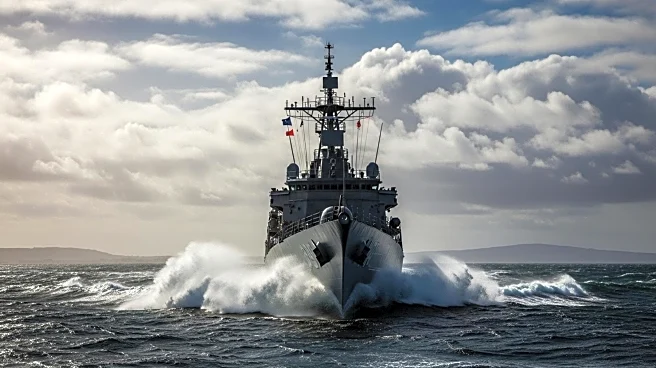What's Happening?
The Israeli military has intercepted a convoy of aid ships bound for Gaza, detaining Swedish climate activist Greta Thunberg and other participants. The Global Sumud Flotilla, consisting of over 500 participants from various countries, aimed to break Israel's blockade of Gaza and deliver humanitarian aid. The interception occurred about 70 nautical miles from Gaza, with Israeli forces reportedly using aggressive tactics such as ramming and water cannons. Israel claims the flotilla's purpose was provocation rather than aid delivery. The incident has sparked international backlash, with protests in several countries and calls for the safety and release of the detained activists.
Why It's Important?
The interception of the flotilla underscores the ongoing humanitarian crisis in Gaza and the international community's divided response to the Israeli blockade. The incident highlights the tensions between Israel and pro-Palestinian activists, as well as the broader geopolitical implications of the blockade. The international outcry and protests reflect widespread concern over the humanitarian situation in Gaza and the perceived heavy-handedness of Israeli actions. The event also raises questions about the effectiveness of international diplomacy in addressing the Israeli-Palestinian conflict and the role of humanitarian efforts in conflict zones.
What's Next?
The detained activists, including Greta Thunberg, are expected to be deported to Europe. The incident may lead to increased diplomatic pressure on Israel to ease the blockade and allow humanitarian aid into Gaza. It could also prompt further international protests and calls for action from global leaders. The situation may influence future humanitarian missions and the strategies employed by activists to deliver aid to conflict zones. Additionally, the incident could impact Israel's diplomatic relations with countries whose citizens were involved in the flotilla.










